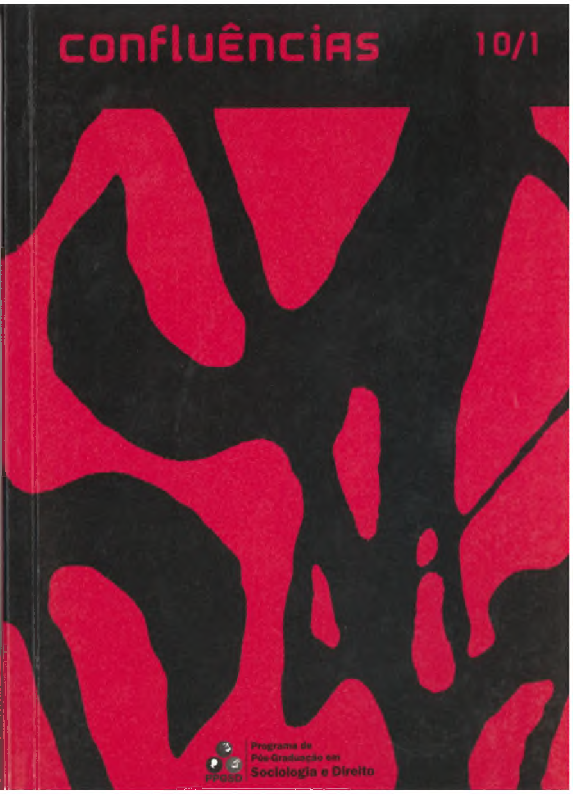Acesso à justiça e favelas do Rio de Janeiro: reflexões a partir de um contexto concreto
DOI:
https://doi.org/10.22409/conflu10i1.p15Abstract
As reflexões trazidas pelos estudos de Bryant Garth e Mauro Cappelletti (GARTH, CAPPELLETTI: 2002) trouxeram profundas mudanças na produção de políticas estatais de prestação jurisdicional pobres no mundo inteiro. A partir das reformas e instituições levantadas pelo “Projeto Florença” puderam nos proporcionar uma profunda visão dos dilemas e desafios de se perseguir um sistema que seja igualmente acessível a todas e também produza resultados que sejam individual e socialmente justos (GARTH, CAPPELLETTI 2002:8). Os autores identificam três ondas, necessidades traduzidas em ações que visam perseguir o acesso à justiça como requisito fundamental-o elemento mais básico dos direitos humanos (Opus cit., 12). São elas: a assistência judiciária universal - para todos, pobres inclusive; a capacidade de proporcionar a defesa e promoção de interesses difusos; e, finalmente, um novo enfoque de acesso à justiça, que permita uma concepção mais ampla da questão. Essa leitura foi ampliada por Kim Economides (1999), que por sua vez desenvolve as linhas até então traçadas e acrescenta ainda a emergência de se perquirir por mais uma nova onda: o acesso à informação jurídica e o papel desempenhado pelas chamadas novas profissões jurídicas.Downloads
Download data is not yet available.
Downloads
Published
2013-07-10
How to Cite
Noronha, R. (2013). Acesso à justiça e favelas do Rio de Janeiro: reflexões a partir de um contexto concreto. Confluências | Interdisciplinary Review of Sociology and Law, 10(1), 123-137. https://doi.org/10.22409/conflu10i1.p15
Issue
Section
Artigos
License
The authors hold the copyright, with first publication rights granted to the journal, being the work simultaneously licensed under the Creative Commons Attribution Licence, which allows the work to be shared with acknowledgement of authorship and first publication in this journal.
The authors have authorization to separately purchase additional contracts of non-exclusive distribution of the work's version published in this journal (e.g.:publication in institutional repositories or as a book chapter), with acknowledgment of authorship and first publication in this journal.
The authors have permission and are encouraged to publish and disseminate their work online (e.g.:in institutional repositories or on their personal page), at any point - either before or during the editorial process, since it may generate productive changes, as well as increase the impact and citation of the published work.







